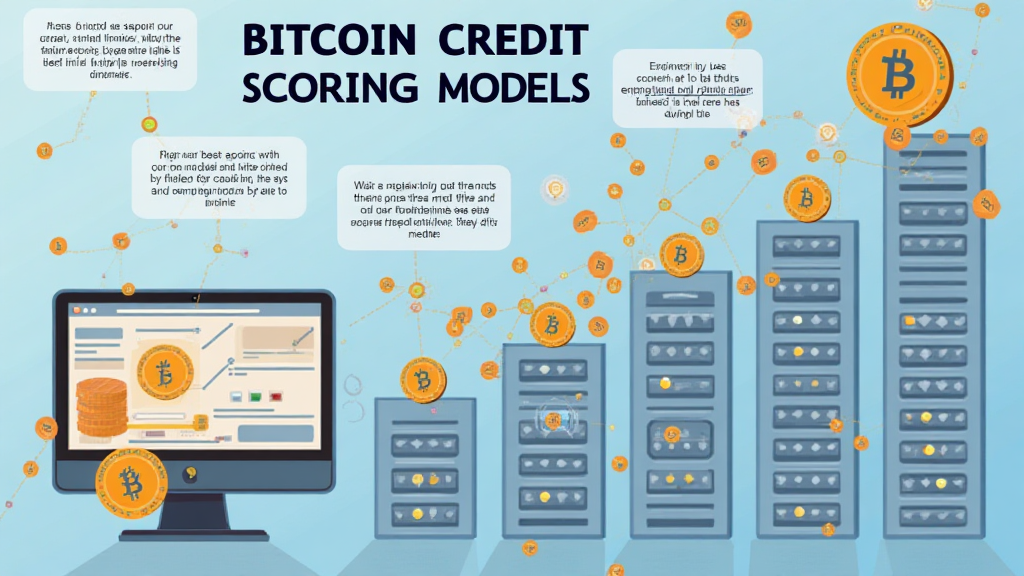
Introduction
With the rapid rise of cryptocurrencies, the financial landscape is evolving more than ever. As individuals and businesses seek to leverage digital assets, traditional credit scoring mechanisms face numerous challenges. In 2024 alone, $4.1 billion was lost to DeFi hacks, highlighting the need for secure and accurate credit assessment methods that can keep pace with blockchain technology. This is where Bitcoin credit scoring models come into play, promising to reshape how we view creditworthiness in the digital age.
By integrating blockchain technology into credit scoring, we can create models that not only improve accuracy but also enhance trust in the financial system. In this article, we will explore the essential aspects of Bitcoin credit scoring models, their relevance to both global and Vietnamese markets, and how they can reshape financial assessments moving forward.
The Need for Bitcoin Credit Scoring Models
The digital economy operates differently from the traditional financial landscape. While conventional credit scoring relies heavily on historical financial data, Bitcoin credit scoring introduces new parameters based on transactional behavior and blockchain history. Here’s why this innovation is crucial:

- Data Availability: Blockchain provides a transparent and immutable record of transactions, allowing for real-time credit assessments.
- Inclusivity: Many individuals in emerging markets like Vietnam lack access to traditional banking; Bitcoin credit scoring can include them in the financial system.
- Enhanced Security: By utilizing decentralized data, the chances of fraud decrease significantly compared to traditional credit systems.
How Bitcoin Credit Scoring Works
So, how do Bitcoin credit scoring models actually operate? Let’s break it down into key components:
1. Blockchain Data Analysis
At the heart of Bitcoin credit scoring models are algorithms that analyze transaction data across the Bitcoin blockchain. These algorithms assess metrics such as:
- Transaction History: Frequency, volume, and types of transactions can indicate financial behavior.
- Wallet Age: Older wallets with consistent healthy activity may be seen as lower risk.
- Peer Comparison: Analyzing similar wallet behaviors can place an individual’s creditworthiness in context.
2. Alternative Data Sources
To create a more holistic view of an individual’s credit profile, these models might also incorporate alternative data sources. For example:
- Social Media Activity: Engagement levels can reflect trustworthiness.
- Utility Payments: Timely payments of utility bills can indicate responsible financial behavior.
3. Machine Learning Integration
Machine learning plays a pivotal role in refining credit models over time. These systems learn from new data, adjusting scores as users interact with their assets in real-time. This adaptability ensures that the models remain relevant in a fast-evolving digital environment.
Advantages of Bitcoin Credit Scoring Models
Unlike traditional models, Bitcoin credit scoring offers numerous advantages:
1. Increased Transparency
With all transactions being publicly available on the blockchain, stakeholders can easily verify data, reducing mistrust.
2. Reduction of Bias
Traditional systems often rely on historical data that can inadvertently perpetuate biases. Bitcoin scoring, bolstered by a diverse range of data, can provide a more equitable assessment.
3. Global Reach
With the rise of decentralized finance, these models cater to a global audience. For instance, in Vietnam, the cryptocurrency user growth rate has soared, making it essential to adopt Bitcoin credit scoring in the local landscape.
The Vietnamese Market: Adoption and Trends
Vietnam is witnessing a cryptocurrency revolution, with studies indicating a remarkable increase in users. As of 2023, the country has experienced a 490% surge in crypto adoption — one of the highest globally. This rapid growth presents a significant opportunity for Bitcoin credit scoring models to fill the gaps left by traditional banking systems.
1. Local Regulatory Framework
As Vietnam continues to lay down its regulatory framework for cryptocurrencies, the integration of Bitcoin credit scoring can position the country at the forefront of digital finance innovation. Government agencies are keen to explore frameworks that enhance financial inclusion while ensuring compliance, opening avenues for collaboration between tech firms and regulators.
2. Consumer Education
To effectively implement Bitcoin credit scoring methods, user education in Vietnam is paramount. Educational programs that explain the benefits, functioning, and security of these models can aid in acceptance and trust. Local crypto platforms can play a significant role in disseminating this knowledge.
Challenges Ahead
Despite the promising advantages, transitioning to Bitcoin credit scoring models also comes with obstacles:
1. Regulatory Hurdles
Certain regulations may not yet accommodate blockchain-driven data assessments effectively. Ensuring compliance will be a continuous juggling act for financial institutions.
2. Technological Barriers
Small and medium enterprises in Vietnam may lack the technical infrastructure needed to adopt these advanced scoring models. Continued investment and education will be necessary to bridge this gap.
3. Data Privacy Concerns
With every transaction being recorded, questions regarding user privacy arise. Clear guidelines and ethical practices must be established to safeguard consumer interests.
Conclusion
The emergence of Bitcoin credit scoring models signifies the dawn of a more inclusive, secure, and transparent financial domain. By analyzing blockchain data and personal behavioral patterns, these models present an innovative approach to evaluating creditworthiness. Particularly in dynamic markets such as Vietnam, these scoring systems not only enhance inclusivity but also adapt to a rapidly changing economic environment.
As we move forward into 2025, staying updated on advances in technology and regulatory guidelines will be crucial for stakeholders aiming to leverage these models effectively. By embracing Bitcoin credit scoring, we stand to witness a transformation in the way we perceive credit and trust in the digital financial age.
To learn more about digital asset security and innovative financial practices, visit hibt.com.
Not financial advice. Consult local regulators.







